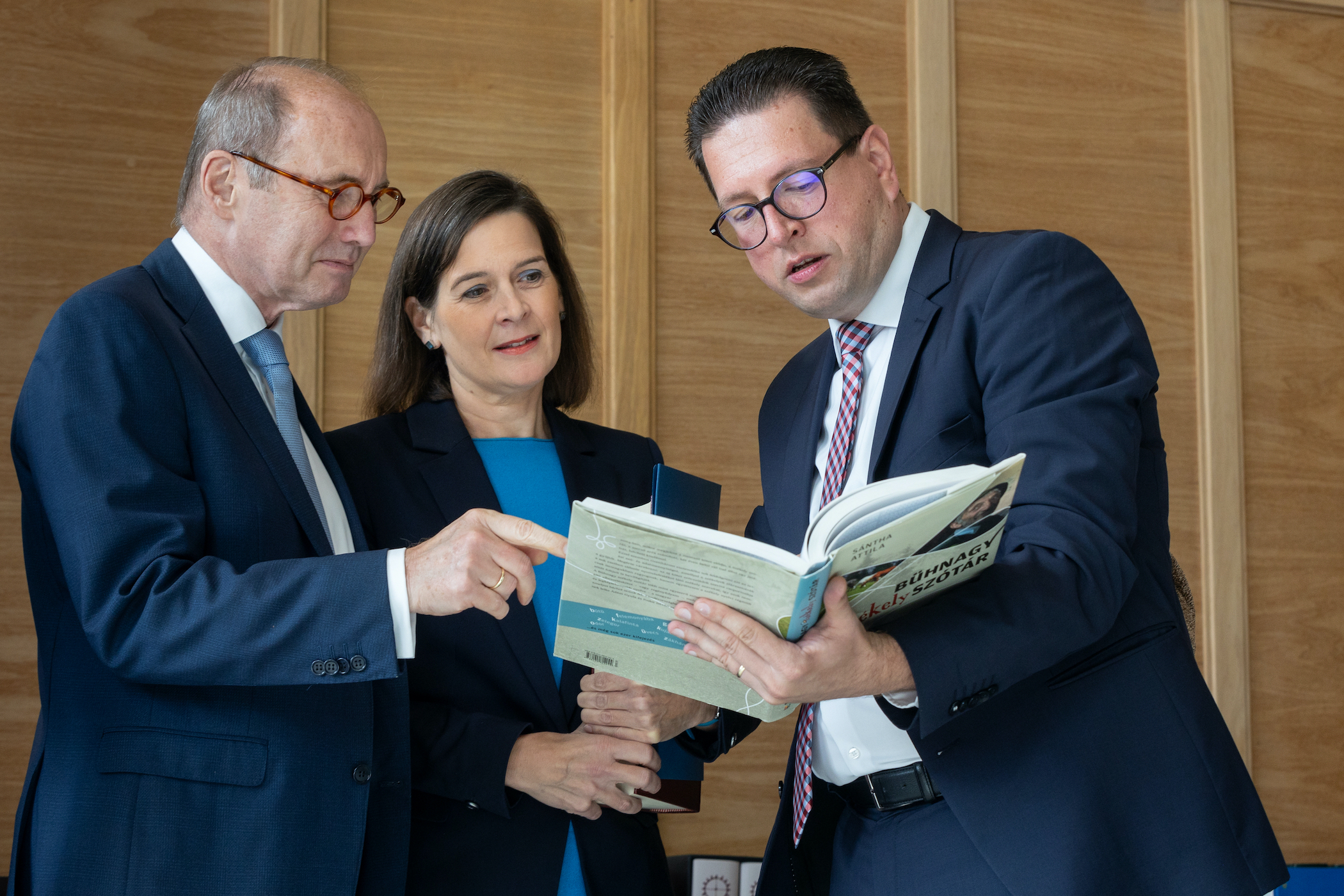
How to better protect Europe's great treasure? Dictionaries and Debate on the Day of Languages
27.09.2023The long table was richly laid in the House of European History in Brussels – 65 dictionaries in minority languages were ready there yesterday on the occasion of the European Day of Languages to be handed over to the museum in a solemn ceremony. The action was organised by the Intergroup on Traditional Minorities, National Communities and Languages of the European Parliament and FUEN. Numerous minorities and language groups had participated after an appeal with dictionaries and some were also present in person at the handover.
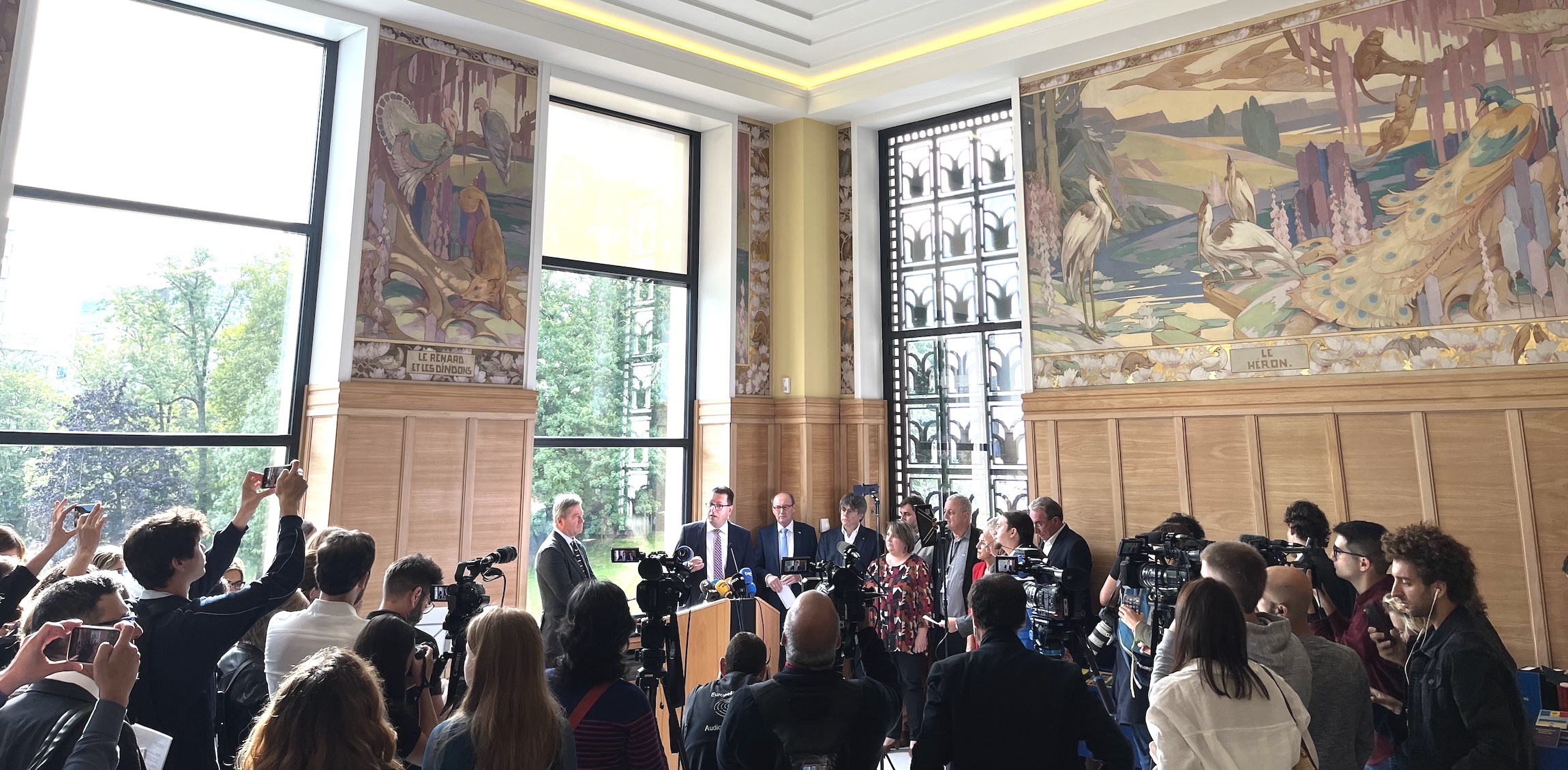
The dictionary hand-over ceremony at the House of European History was well attended. Photo: FUEN
"Linguistic diversity needs better understanding and is a central part of our continent's heritage," said Othmar Karas, First Vice-President of the European Parliament, in his welcome address. "The European Day of Languages is an excellent opportunity to celebrate all languages, including lesser-used and minority languages." Addressing the key role of dictionaries, FUEN President Loránt Vincze said: "Dictionaries are the bridge of words between cultures, they make possible understanding each other, they are keys to another culture, they favour dialogue, and if they are used wisely, they certainly contribute to peace."
According to official EU figures, in addition to the 24 official languages of the European Union, there are more than 60 regional or minority languages whose number of speakers is put at 40 million citizens. This means that around seven percent of the EU population speak a minority or regional language. It is precisely those communities that speak a less common language and do not have their own state that are most at risk, Vincze said. "They need our support and deserve more attention from the European Union. This was one of the main points of the Minority SafePack Initiative, which was supported by a large majority in the European Parliament. We definitely need to do more to protect our own heritage."
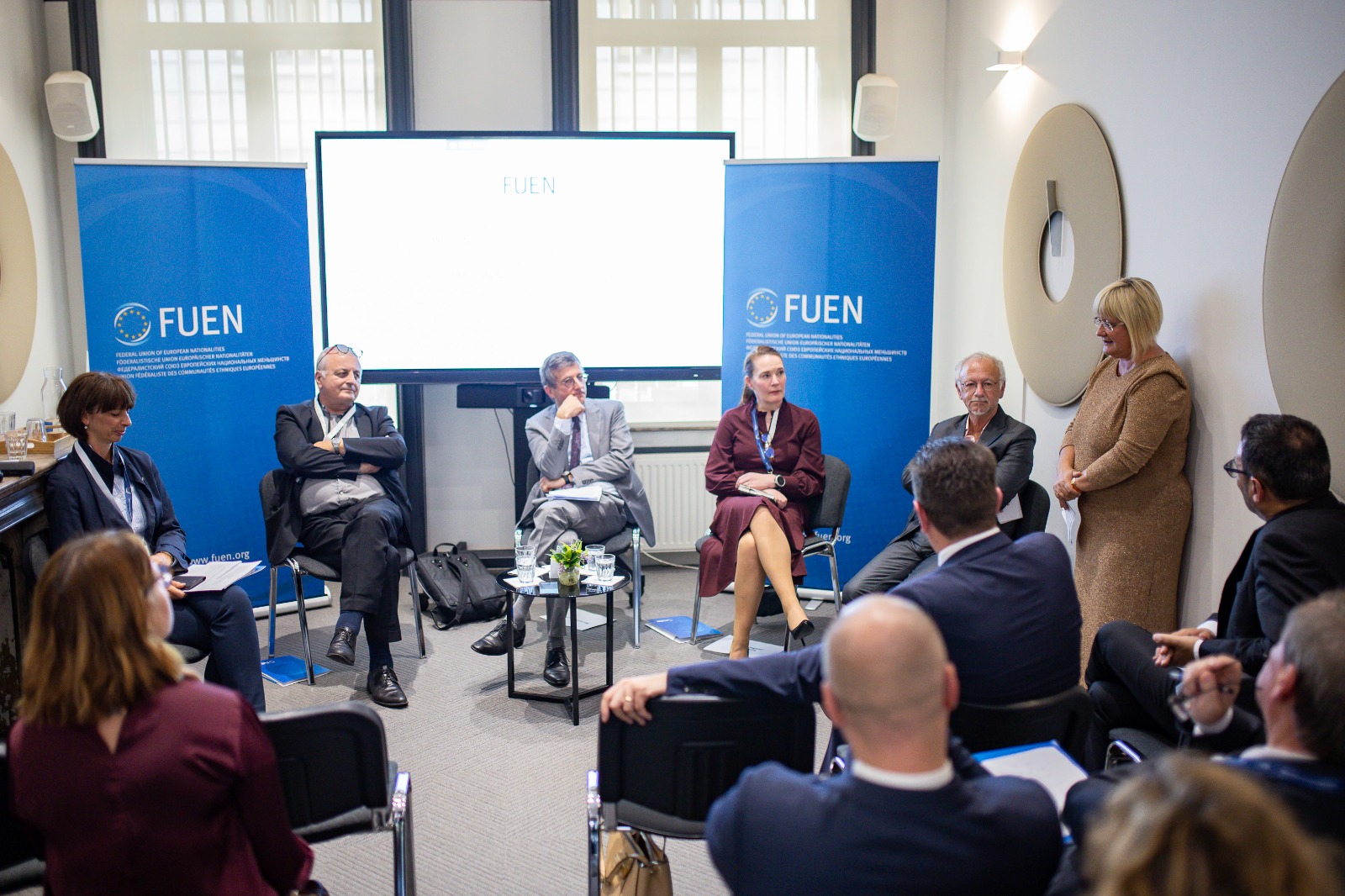
Debate on minority languages at the FUEN Brussels Representation. On the podium (v.li.): Olivia Schubert (moderator), Francois Alfonsi, Michael Teutsch, Anna Jungner-Nordgren, Fernand de Varennes, Kinga Gál. Photo: Iris Haidau
Following the dictionary ceremony, a panel discussion on "Minority Languages as Part of the European Linguistic and Cultural Landscape: Role of Minority NGOs in preserving diversity in Europe" took place at the FUEN Brussels office.
Paul Videsott, professor at the Free University of Bozen/Bolzano and Scientific Director of the Institute for Ethnic Groups in South Tyrol, presented a report comparing nationality statistics and minority protection measures in different countries. The bottom line: two thirds of the minority communities in the EU have lost population in the last forty years. Out of 29 examples of growing minorities in the EU, 22 (76%) have a standard language. Of 17 minorities living in a region in the EU with a dedicated autonomy, 12 (70%) are growing. This shows: "Fortunately, we do not need to find completely new solutions for the protection of minority languages, because the best practices have already been found: Autonomy agreements, written language use and special measures to strengthen languages – these are the key elements for preserving linguistic diversity," says Videsott.
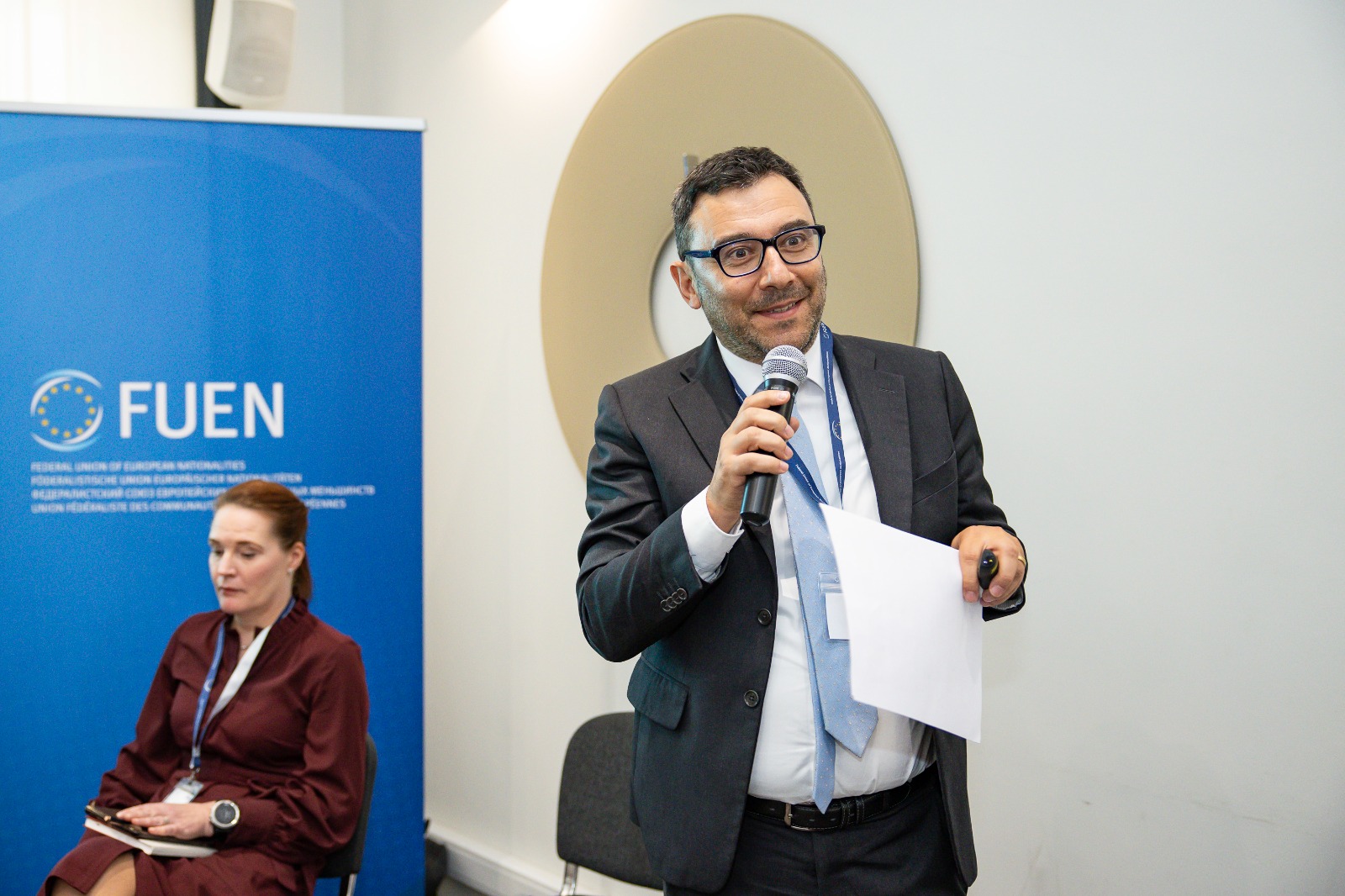
Paul Videsott researches on the topic of minorities. Photo: Iris Haidau
Fernand de Varennes made it clear that time is running out for this in view of dramatically declining numbers of speakers. "We must finally wake up!" appealed the UN Special Rapporteur on Minorities and criticised that many governments were taking the air out of the use of minority languages in various areas such as education and public administration.
An ode to the added value of linguistic diversity was sung by Anna Jungner-Nordgren, Vice-Chair of the Network to Promote Lingustic Diversity (NPLD). It is important to recognise this added value and to be constantly aware of it. But without political support, linguistic diversity cannot be preserved. The European Commission’s representative, Michael Teutsch, DG Education, Youth, Sport and Culture said that their institution supports linguistic diversity as it is through specific instruments such as the Erasmus+ in the sphere of education. "The Commission must intervene and protect linguistic diversity in the EU more strongly," said the Co-Chair of the Intergroup on Minorities, MEP Francois Alfonsi. His colleague Kinga Gál pointed to the important work of minority NGOs such as FUEN and expressed the hope that the proposals of the Minority SafePack would eventually be translated into legislation.
After all, isn't the motto of the European Union "United in Diversity"?
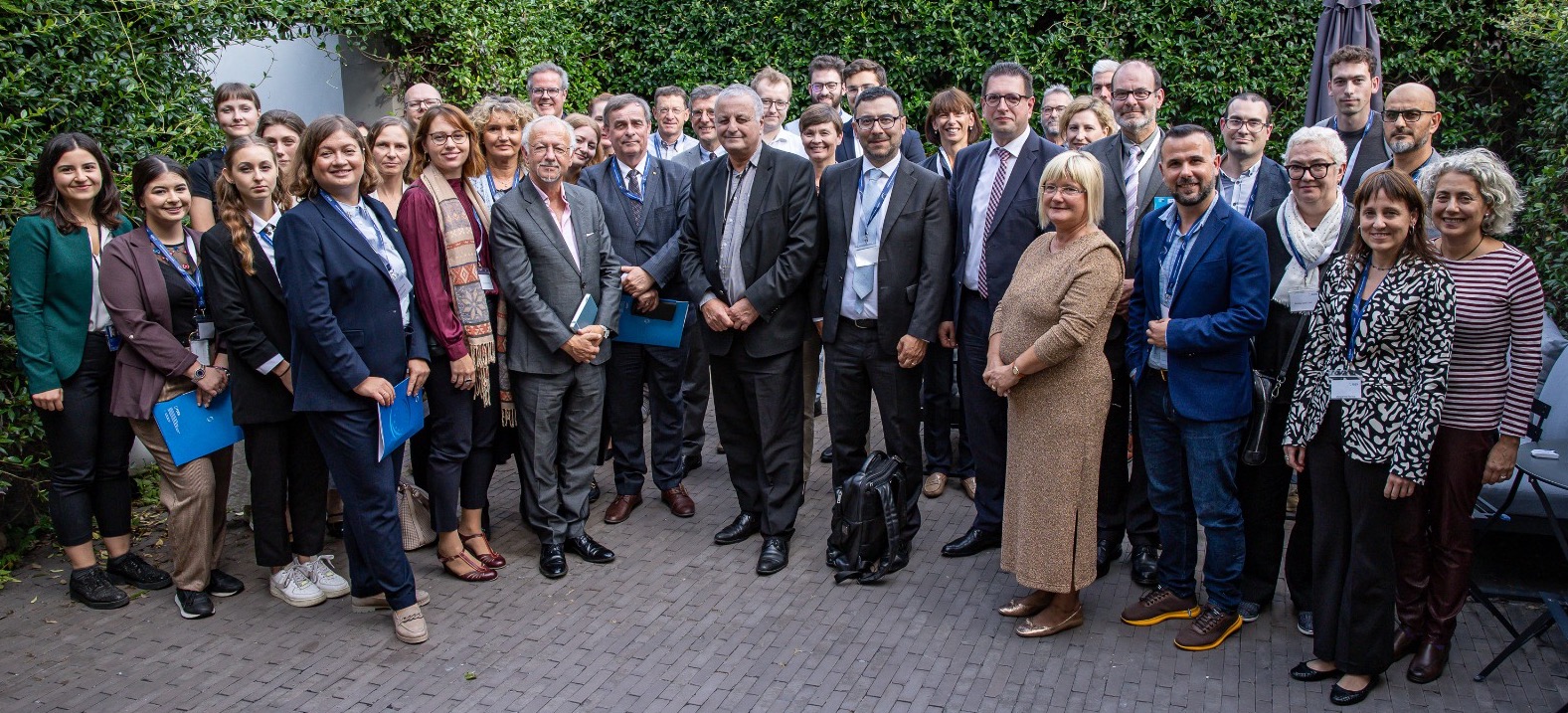
Participants at our European Day of Languages event in Brussels on 26 September 2023. Photo Credit: Iris Haidau
Titlephoto Credit: European Union 2023/Alain Rolland
For more photos of the dictionary ceremony, click here
For more photos of FUEN's panel discussion in Brussels, click here
COMMUNIQUÉ DE PRESSE
- FUEN wishes you a peaceful Christmas season, restful days and a bright, hopeful start to the new year!
- FUEN calls on the EU to act over systematic ethnic-based land confiscations in Slovakia
- Women of Minorities conference in Budapest calls for structural change to ensure equal political participation of minority women
- FUEN President Olivia Schubert at UN Forum on Minority Issues in Geneva
- "Laboratory of Peace": 28th Seminar of Slavic Minorities held in European Capital of Culture Gorica/Gorizia
- Equality in Political Participation and Representation: Third “Women of Minorities” Conference to Be Held in Budapest
- FUEN Working Group on Education discusses challenges and future of minority schooling in Europe
- 28th Seminar of Slavic Minorities in Europe to take place in Gorica/Gorizia, Italy
- Olivia Schubert in her first interview as FUEN President
- FUEN Assembly of Delegates elects new leadership – Olivia Schubert becomes new President














